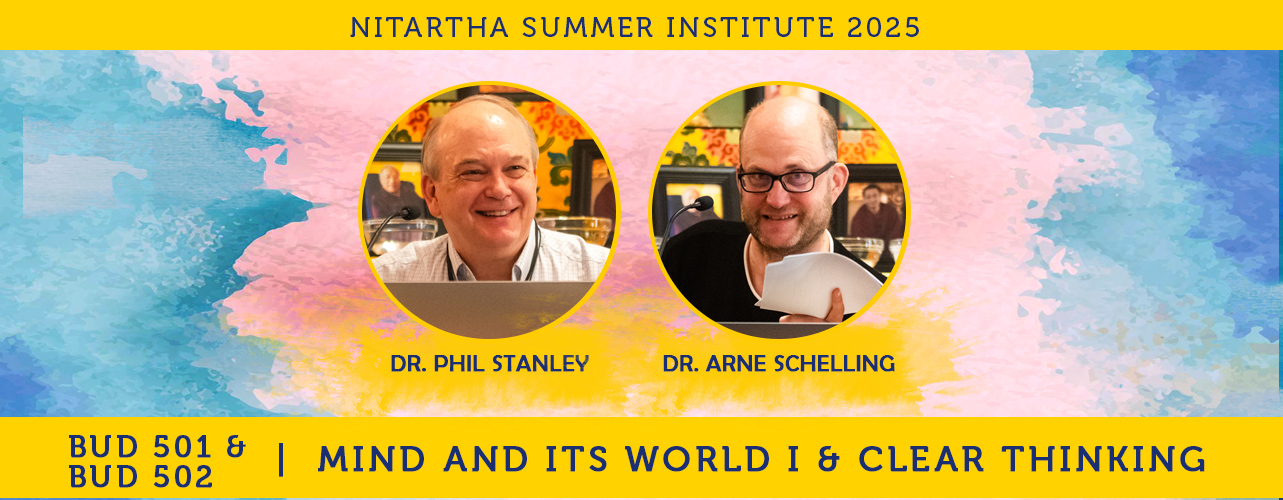
Mind & Its World I: Valid Cognition
This course explores the criteria of valid cognition (pramana) based on the teachings of the pramana tradition, or Buddhist epistemology. We will analyze our consciousness and determine to what degree, if at all, it is in agreement with its observed object. We will also look at the difference between non-mistaken, non-deceiving, conceptual and non-conceptual types of awareness. On a practical level, this course will also provide you with the tools for distinguishing between conceptual and nonconceptual types of mind in your meditation practice.
Clear Thinking (BUD 502)
Clear Thinking helps us to clarify and deepen our understanding of knowable objects through learning methods for thinking clearly. This is developed by formulating definitions, examples, equivalents and classifications, and by exploring the four types of logical relationships between two phenomena.
This course explores the criteria of valid cognition (pramana) based on the teachings of the pramana tradition, or Buddhist epistemology. We will analyze our consciousness and determine to what degree, if at all, it is in agreement with its observed object. We will also look at the difference between non-mistaken, non-deceiving, conceptual and non-conceptual types of awareness. On a practical level, this course will also provide you with the tools for distinguishing between conceptual and nonconceptual types of mind in your meditation practice.
Clear Thinking (BUD 502)
Clear Thinking helps us to clarify and deepen our understanding of knowable objects through learning methods for thinking clearly. This is developed by formulating definitions, examples, equivalents and classifications, and by exploring the four types of logical relationships between two phenomena.
Faculty/Instructor(s): Dr. Phil Stanley, Dr. Arne Schelling
Language(s): English
